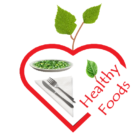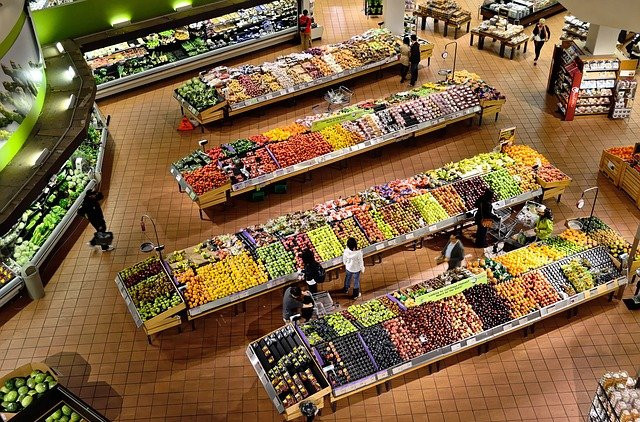Healthy Eating Organic -Should You Go Organic?
Organic Foods
Remember that you should buy and eat Organic Foods more often if you want to be kind to your body!
Indeed, choosing organic foods will avoid synthetic additives and harmful pesticides, which can cause harmful diseases.
However, some non-organic fruits & vegetables don’t absorb harmful pesticides and are equally safe to eat.
Eating organic foods is the best way to avoid GMOs ( Genetically Modified Organisms).
In fact, As per the organic rules and regulations (United States Department of Agriculture), GMO seeds are not permitted for organic crops.
Yes, organic foods are often beneficial for people with food allergies.
When they eat organic foods, their allergy symptoms may lessen or go away.
This post contains affiliate links.
About Organic Food
Organic Fruits & Vegetables, are in fact, grown without synthetic fertilizers and pesticides.
The soil where organic crops are grown must be free of most synthetic pesticides and fertilizers.
To sell organic food in the United States, all foods must have an ‘organic’ label.
Just because a crop fits the definition
of ‘organic’ doesn’t mean it’s free of fertilizer residue.
Indeed, exposure to a bit of pesticide isn’t necessarily toxic for humans.
Organic Animal Products do not contain any antibiotics or growth hormones.
The animals are raised on organic farms and fed exclusively on organic feed.
Important Rules
Importantly, all organic foods in the United States should follow the guidelines of the USDA.
MUST have certified food label ‘organic.’
Crops cannot be genetically modified, as per the USDA rules.
The FDA recommends washing fruits and vegetables before eating or using them.
The best way to wash them is by cleaning them with baking soda, white vinegar, and water.
EWC ( Environmental Working Groups)
EWC Recommends consumers choose organic whenever possible from the “Dirty Dozen List.”
THE DIRTY DOZEN LIST (Most Contaminated )
- Fruits Strawberries, Apples, Grapes, Cherries, Peaches, and Pears,
- Vegetables, Spinach, Kale, Celery, Collard & Green Mustard, Tomatoes, and Bell & Hot Pepper.
SOME PEOPLE CAN’T AFFORD, OR DON’T HAVE ACCESS TO ORGANIC FOODS
They can choose non-organic foods, with the least amount of pesticides, from the “Clean Fifteen List.”
THE CLEAN FIFTEEN LIST (Least Contaminated)
- Fruits Pineapples, Papayas, Kiwis, Honeydew melons, Cantaloupes, and Avocado( Avocado).
- Vegetables Sweet corn, Onions, Sweet peas (frozen), Eggplant, Asparagus, Broccoli, Cabbage, Cauliflower, and Mushroom.
Is Organic Food Expensive?
To buy organic food, you are likely to pay a higher price on many items.
As much as 10% to 50% more.
If you are on a budget and cannot afford organic foods, you must buy some non-organic foods and save your money.
How To Save Money
Check the most contaminated fruit and vegetable EWC List above.
Buy those products organic because they have the highest pesticide residues.
Some organic foods are cheaper if you buy them at your local Farmers Market.
You can also buy them cheaper online.
Some frozen organic foods are usually cheaper than fresh ones.
Advantages of Organic Foods
Organic fruits and vegetables taste better.
They have a fuller flavor since they contain lower water content.
Besides, organic foods contain 40% more antioxidants and have higher levels of nutrients.
Significantly, organic food lowers the risk of heart diseases.
They contain a very high level of Salicylic Acid.
Salicylic Acid indeed protects your arteries from hardening.
Disadvantages of Organic Foods
Some organic foods have a shorter shelf-life than other foods.
They can quickly spoil because they don’t have any added preservatives.
Some organic foods are more expensive to buy because of the excess cost of production.
Genetically Modified Crops- GMOs
Mostly, fear of GMOs and their effect on human health is why you should go for organic.
GMOs introduce foreign genes into the food you eat.
While GMOs do not harm consumers, that’s not to say they NEVER could!
Conclusion
Organic foods are very healthy, with high levels of nutrients and low levels of pesticides.
Some people can’t afford or don’t have access to organic foods.
They should choose non-organic foods from the “Clean Fifteen List” above.
EWG recommends consumers should check the “Dirty Dozen List.” and buy organic foods.
CLICK HERE =>TO VIEW



1 Comment on "Healthy Eating Organic -Should You Go Organic?"
Very insightful, thank you.